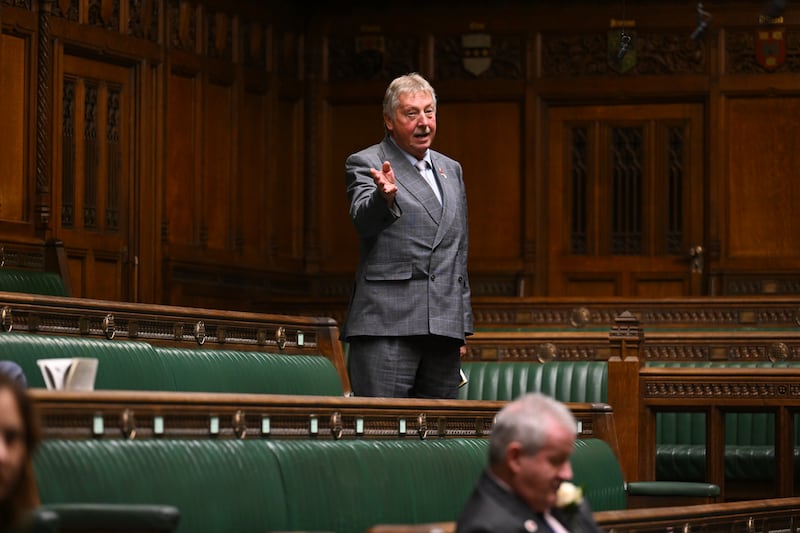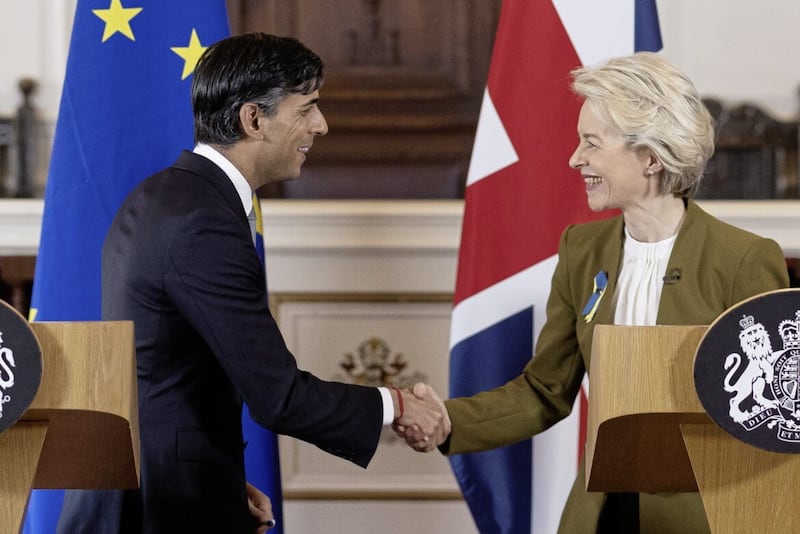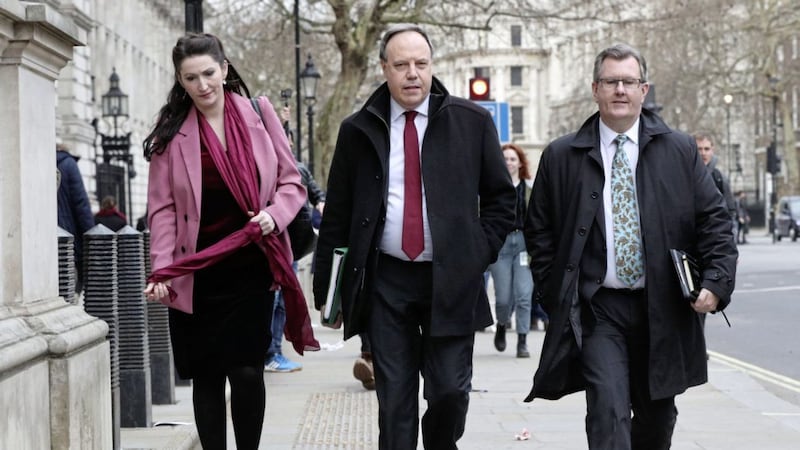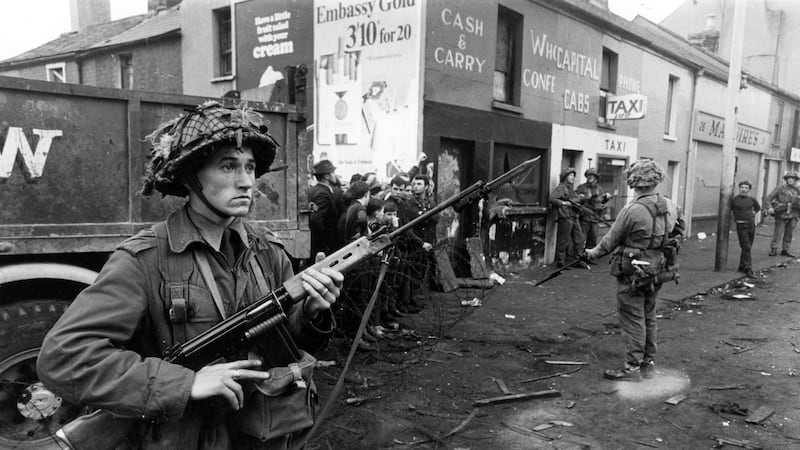Perhaps you’re one of those who thought that, in the famous line of the English 1966 World Cup commentator, “They think it’s all over”.
Unfortunately, in the case of the DUP and the Irish Sea border, the second half of the line would be “It isn’t”. It isn’t, because the struggle within the DUP continues. It will be played out in Stormont to the detriment of the assembly’s stability, inter-party relations and business confidence.
Despite Donaldson’s sending the DUP back to Stormont being endorsed in the latest poll by an overwhelming 67%, opposition in his party continues to simmer. Half the MPs, all those in the Lords and at least half a dozen assembly members oppose the move.
As is his style, Donaldson will appease them. The forum where the rearguard action will be fought is in the grandiosely titled Windsor Framework Democratic Scrutiny Committee.
As this paper reported last Friday, the committee will examine the consequences of applying or not applying new or replacement EU law here. The DUP dissidents will be agitating to use the so-called Stormont Brake on each and every occasion. Indeed, Donaldson has indicated he would encourage it to be used within the first month of the new executive, despite the risk of creating instability in the restored institutions.
- Unionism must learn to embrace change or die on the rock of fear – Alex KaneOpens in new window
- Perfidious Albion and the trashing of the Good Friday Agreement – Brian FeeneyOpens in new window
- Red, white and blue command paper seeks to restore unionist veto at Stormont – Brian FeeneyOpens in new window
There’s no appetite outside the DUP dissidents for this irresponsible behaviour. Furthermore, it guarantees that the holes in Donaldson’s dirty deal will be exposed sooner than necessary.

For businesses here, this carry-on is reckless. It’s inevitable that EU rules will be updated and if businesses here want to benefit from their ability to sell into the EU, they will have to follow the updates. They will be only delighted to do so if it means they increase their sales.
Businesses in Britain have been begging the UK government to comply with EU updates for the same reasons. Accordingly, Sunak has abandoned the notion of ‘a bonfire of EU laws’ which the Brexit purists wanted. He has also scrapped the plan for ‘British Standards’ which would have meant industries having to manufacture two sets of goods, at crippling cost – one for the EU and one for the UK. However, there will unavoidably be changes in drug licensing, pesticides, chemicals, and much more from which Britain will diverge. The DUP will try to stop the north diverging regardless of the economic and commercial consequences.

At the first meeting of the Stormont Brake committee (for that’s what it is), an official issued a veiled warning that there could be ‘trivergence’ if the north did a solo run rejecting updates. That’s to say if the north refused an EU update but Britain accepted it, then the north would be the only place applying the old rules. One DUP MLA believed that in such circumstances the UK would take action to ensure the north wouldn’t be negatively impacted. Seriously? That gives some idea of what Stormont and business has to contend with.
On the bright side, however, the Stormont Brake which the DUP is so anxious to pull is well-nigh impossible to operate and is designed to be so. Thirty MLAs from two or more parties have to demonstrate a significant impact specific to “the everyday life of communities in Northern Ireland in a way that is liable to persist”. How do you define any of that?
The DUP’s behaviour is profoundly undemocratic in that a majority in the assembly supports the advantageous trading arrangements and an overwhelming majority in the north supports a return to the EU as evidenced in the recent poll. It seems the DUP prefers to promote instability and impoverishment
Note the use of ‘communities’. As a minority in Stormont, unionists won’t therefore be able to fulfil this condition. Those wishing to operate the brake can only do so in the “most exceptional circumstances and as a last resort, having used every other available mechanism”. They must also show they’ve consulted businesses and civic society and then the UK government must agree all this has happened. Finally, if the ECJ doesn’t agree then the EU can take retaliatory measures.
Donaldson encouraging the Stormont Brake committee to agitate against divergence will only demonstrate that the command paper of January 31, ‘Safeguarding the Union’, is smoke and mirrors supplemented by rhetoric. Furthermore, it promises to fulfil a lot from a government which is fast running out of road. For the DUP, continuing to pick at its wound will only expose what we all know, namely that avoiding a border in the Irish Sea means checks on incoming goods despite Donaldson’s claim to the contrary and EU law still applies.
Finally, the DUP’s behaviour is profoundly undemocratic in that a majority in the assembly supports the advantageous trading arrangements and an overwhelming majority in the north supports a return to the EU as evidenced in the recent poll. It seems the DUP prefers to promote instability and impoverishment.



